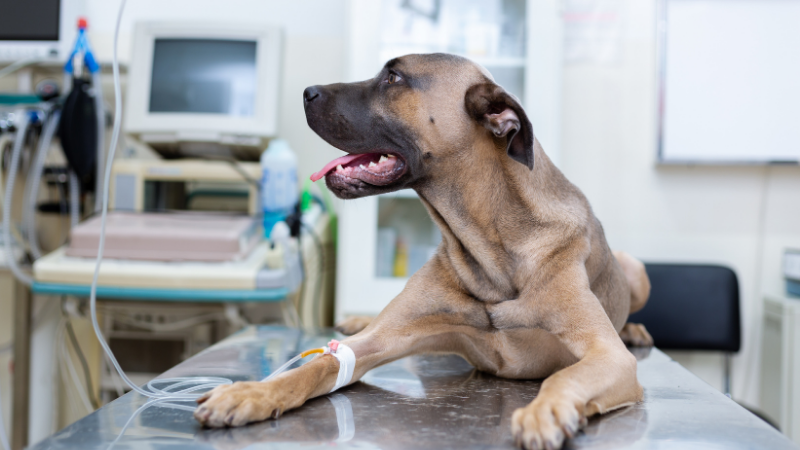
People volunteering to donate blood has been described as giving the gift of life. Did you know that dogs can become blood donors as well? One unit (450 mls) of blood can be used to save four different patients with life-threatening conditions like cancer, poisoning, clotting diseases, or traumatic injuries. Blood products are also given to dogs undergoing major surgeries and other intensive treatments.
Can my dog donate blood?
Canadian Animal Blood Bank (CABB) holds donation clinics through neighbourhood veterinary clinics. To become qualified as a donor, dogs must meet the following criteria:- Veterinarian-recommended healthy, even in temperament and calm enough to be restrained
- Minimum 55 lbs (25 kg) lean body weight
- 1 – 8 yrs of age to start and can donate until age 10 (health permitting)
- Not taking medications that may exclude the donor eligibility to donate
- Current on core vaccines as determined by the CABB (titre testing is accepted) with a minimum of four weeks post-vaccination at time of donation
- Eligible to donate every 3 months for a minimum of two years
- Universal donors (Blood type DEA 1.1 Negative) are especially appreciated. The following breeds are more likely to possess this blood type: Airedale Terrier, American Bulldog, Boxer, Cane Corso, Doberman, Dogue de Bordeaux, English Bull Terrier, Greyhound, German Shepherd, German Shorthaired Pointer, Great Pyrenees, Irish Wolfhound, Lurcher, Newfoundland, Old English Sheepdog, Pitbull-type breeds, Siberian Husky, Standard Poodle, and Weimaraner.
Critical donor skills to work on with your dog
- Comfort with lifting. Dogs are lifted into place and held on their sides during the donation process. Practice giving your dog big hugs and then lifting with another family member or friend to waist height. Offer lots of treats before and after the lift.
- Walking onto the weigh scale at the clinic. The donation team needs to know exactly how much your dog weighs prior to the procedure. At home, teach your dog to step onto thick books or the sturdy lid of a storage container. Clinic staff will welcome your dog into your regular veterinary clinic prior to donating for happy weigh-in visits and treats.
- Settle. Patients are generally lying on their side for 15 minutes or so while donating. Two veterinary techs or assistants will help your dog lay still on the table. Ensure your dog is comfortable in a settle position while relaxing on a mat or dog bed.
- Desensitize to vibration noises and sensations around the neck. The donation team needs to shave a small area on the neck to prep the needle site. See how your dog reacts to the site and sound of an electric toothbrush. Start by holding it for your pup to see and hear it. As he gets used to the sound, place it at the chest and work your way up and over the neck.
